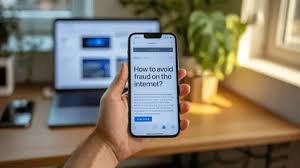Unraveling the Mystery of Phone Number 8177362718: Insights into Telecom, Scams, and Digital Privacy

In today’s hyper-connected world, phone numbers are more than just strings of digits—they’re gateways to communication, business opportunities, and unfortunately, potential risks. Every day, millions of people receive calls from unknown numbers, prompting quick online searches to uncover their origins. One such number that has sparked curiosity is 8177362718. Whether you’ve received a call from this number or stumbled upon it in a reverse lookup, understanding its context can shed light on broader issues in telecommunications, privacy, and digital security. In this comprehensive blog post, we’ll explore the intricacies of phone numbers like 8177362718, drawing from tech and business perspectives to help you navigate these modern mysteries.
The Basics of Phone Numbers: Decoding the Structure
To start, let’s break down what a phone number like 8177362718 represents. In the North American Numbering Plan (NANP), which covers the United States, Canada, and several other countries, phone numbers follow a standard 10-digit format: NXX-NXX-XXXX, where “N” is a digit from 2-9, and “X” is any digit from 0-9. The first three digits (817 in this case) form the area code, indicating a geographic region.
The 817 area code is primarily associated with North Texas, including cities like Fort Worth, Arlington, and parts of Dallas. Established in 1953, it was one of the original area codes for Texas and has since been overlaid with 682 and 469 to accommodate growing demand. Numbers starting with 817 are common in this bustling region, home to major corporations, tech hubs, and a vibrant economy. For instance, Fort Worth is a key player in aerospace, energy, and logistics industries, with companies like Lockheed Martin and American Airlines having a strong presence.
The specific number 8177362718 falls under this umbrella. Without proprietary access to carrier databases, pinpointing the exact owner isn’t straightforward for the average user. However, public tools and databases often reveal patterns. A quick reverse phone lookup on sites like Whitepages, Truecaller, or Spokeo might classify it as a landline or mobile number operated by a carrier like AT&T or Verizon, common in Texas. But why does this matter? In the business world, understanding phone number geography can inform marketing strategies, customer outreach, and even fraud prevention.
The Rise of Unknown Calls: Why Numbers Like 8177362718 Spark Suspicion
In an era where robocalls and spam have become epidemic, receiving a call from an unfamiliar number like 8177362718 can trigger immediate wariness. According to the Federal Trade Commission (FTC), Americans received over 4 billion robocalls in 2023 alone, with many originating from spoofed or untraceable sources. Spoofing, where callers mask their real number with a fake one, makes it challenging to trust any incoming call.
Reports from user-generated platforms like WhoCalledMe or 800Notes often flag numbers in the 817 area code for various reasons. Some users report 8177362718 as associated with telemarketing, debt collection, or even potential scams. For example, common complaints include automated messages about extended warranties, IRS impersonation, or tech support frauds—tactics that prey on urgency and fear. While I couldn’t find verified scam alerts specifically for 8177362718 in major databases like the Better Business Bureau (BBB) or FTC’s Do Not Call registry complaints, similar numbers in the 817-736 prefix have been linked to such activities.
From a tech perspective, this highlights the evolution of Voice over IP (VoIP) technology. Services like Google Voice or Twilio allow anyone to acquire virtual numbers cheaply, often without stringent verification. This democratizes communication but also enables misuse. Businesses leveraging VoIP for customer service must balance efficiency with trust-building, ensuring their numbers aren’t flagged as spam. For instance, implementing Know Your Business (KYB) workflows—similar to those discussed in tech articles on compliance—can help legitimate companies avoid blacklisting.
Telecom Regulations and Protecting Yourself from Unwanted Calls
Navigating phone numbers like 8177362718 requires knowledge of regulatory frameworks. The Telephone Consumer Protection Act (TCPA) of 1991 and the more recent Telephone Robocall Abuse Criminal Enforcement and Deterrence (TRACED) Act of 2019 empower consumers. Under TRACED, carriers must implement STIR/SHAKEN protocols, a caller ID authentication system that verifies the legitimacy of calls. If 8177362718 appears as “Spam Risk” on your phone, it’s likely due to these algorithms detecting patterns like high call volume or user reports.
To protect yourself:
- Register with the National Do Not Call Registry: This free service at donotcall.gov reduces telemarketing calls within 31 days.
- Use Call-Blocking Apps: Apps like RoboKiller or Nomorobo analyze incoming calls in real-time, blocking suspicious ones like 8177362718 if flagged.
- Report Suspicious Activity: File complaints with the FTC at reportfraud.ftc.gov or your carrier. This contributes to crowdsourced data that helps others.
In the business realm, companies must comply with these laws to avoid hefty fines—up to $1,500 per violation under TCPA. For tech-driven firms, integrating AI-powered call analytics can differentiate legitimate outreach from spam, improving ROI on marketing campaigns.
The Business Side: How Phone Numbers Drive Commerce and Innovation
Phone numbers aren’t just for personal use; they’re integral to business operations. Consider how a number like 8177362718 could be part of a larger ecosystem. In Texas’s thriving economy, local numbers build trust—customers prefer calling area codes they recognize. This is why multiplatform mobile app development services, as explored in tech discussions, often include features for virtual phone integration, allowing global businesses to maintain local presences.
Take e-commerce giants or startups turning ideas into market leaders. A simple phone number can be the first touchpoint for customer inquiries, support, or sales. However, with the rise of AI-driven tools, businesses are shifting toward chatbots and messaging apps. Yet, voice calls remain crucial for high-value interactions, like closing deals in real estate or finance sectors prevalent in the 817 region.
Moreover, in the context of policy adoption and accountability—key for growing organizations—tracking call data ensures compliance. Tools like VComply help manage internal policies around customer communications, preventing misuse that could lead to numbers like 8177362718 being reported as problematic.
Potential Scams Associated with Similar Numbers
While not definitively tied to 8177362718, patterns in the 817 area code warrant caution. Common scams include:
- Tech Support Scams: Callers claim your computer is infected, urging remote access.
- Utility Shutoff Threats: Fraudsters pose as utility companies demanding immediate payment.
- Prize or Lottery Wins: Unsolicited calls about winnings that require upfront fees.
If you’ve encountered 8177362718 in such scenarios, document the call details and report it. Tech advancements like AI voice analysis are emerging to detect deepfakes, but consumer vigilance remains key.
Digital Privacy in the Age of Phone Data
Your phone number is a treasure trove of data. Services like PeopleFinder or Intelius aggregate public records, potentially linking 8177362718 to addresses, names, or even social media. This raises privacy concerns, especially with data breaches affecting billions.
To enhance privacy:
- Opt out of data broker sites.
- Use secondary numbers for online registrations via apps like Burner.
- Enable two-factor authentication (2FA) but prefer app-based over SMS to avoid SIM-swapping attacks.
From a business viewpoint, respecting user privacy builds loyalty. GDPR and CCPA regulations mandate transparent data handling, influencing how companies use numbers like 8177362718 in marketing.
The Future of Telecommunications: Beyond Traditional Numbers
Looking ahead, phone numbers may evolve with 5G and beyond. AI-driven browsers and search tools could integrate reverse lookups seamlessly, flagging risks in real-time. Imagine voice assistants like Siri or Google Assistant automatically researching 8177362718 before you answer.
In business, multiplatform apps will streamline communications, reducing reliance on single numbers. Innovations in blockchain could create decentralized, verifiable caller IDs, minimizing spoofing.
Conclusion: Empowering Yourself with Knowledge
Phone number 8177362718 exemplifies the dual nature of modern telecom—convenient yet cautious. By understanding its structure, potential risks, and protective measures, you can turn uncertainty into empowerment. Whether for personal safety or business strategy, staying informed is crucial in our digital age.



















